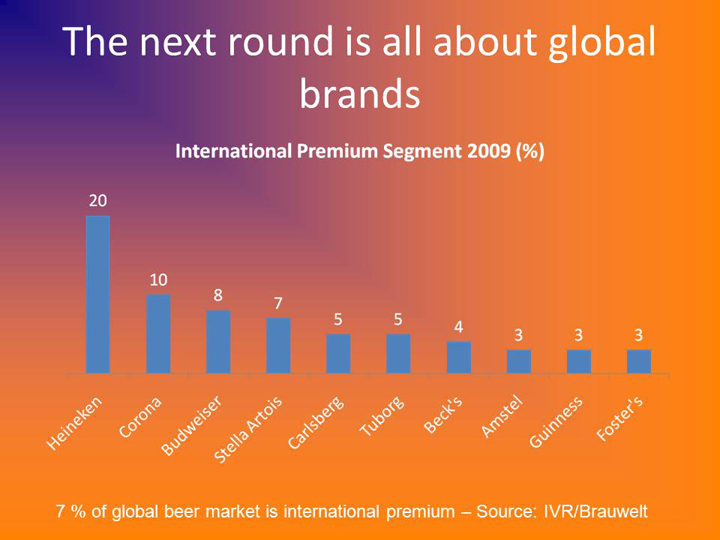Carlos Brito has a skin like an elephant (who would have thought)
It’s been hard for Belgians to stomach the fact that the CEO of their major concern, AB-InBev, has not deemed it a top priority to explain himself to their media. Maybe he even considered public opinion in Belgium irrelevant. After all, what’s Belgium to AB-InBev? 1.5 percent of the brewer’s total global volume. It’s taken him five years at the helm before Carlos Brito, on 7 July 2011 gave his first interview in Belgium: to the business publication Trends.
What could have made Mr Brito change his mind? Possibly it was the final settlement in June 2011 of a long lasting labour dispute with Belgium’s militant unions which had made headlines around the world in January 2010. Faced with 300 job cuts, AB-InBev’s workers had taken to the streets, blocked access to AB-InBev’s facilities and brought production to a two-week halt.
When asked how he felt in early 2010 having been called a vulture by Trends, Mr Brito replied nonchalantly: "Oh, you know this does not affect me. I have an elephant skin. I simply do what is best for the company in the long term."
What other pearls of wisdom did Mr Brito spill in the interview?
He explained at some length the benefits of AB-InBev’s culture of ownership
("I hate the kind of business where managers spend only two or three years. ... We are responsible for our long-term decisions. ... Most of my assets are also invested in AB-InBev shares"); his belief in thinking outside the box ("We look at what is happening outside the beer industry. To attract talent, we examine, for example the practices of Coca-Cola, PepsiCo."), the consequences of acquiring Anheuser-Busch ("Previously, we had difficulty in recruiting world-class people because we were not present in the United States and limited in China... Now we can attract talent to an international career in Beijing, Brussels, New York or Sao Paulo").
But it seems the benefits of buying Anheuser-Busch were not limited to gaining better access to the global talent pool.
Mr Brito said that "we are entering a world where the beer will become a much more comprehensive product than it is today. We had a lot of leading brands in each country. But that does not allow you to play in the top league. With Budweiser, one can, for example, sponsor the [Football] World Cup or the Olympics. Anheuser-Busch had a strong brand but not the distribution network, [while] InBev [had] the network but no strong global brand."
Compared to Heineken, Budweiser is no major global brand as measured in sales outside the United States.
Mr Brito admitted that "well, that’s one of the weaknesses that we still have to overcome. The brand has much more international potential. It has existed since 1876. And we have only had it in our lap for three years."
When asked if it was his ultimate dream to make Budweiser a global brand like Coca-Cola, Mr Brito said "Yes. But with Stella Artois and Beck’s. Stella Artois is our luxury brand. It embodies the tradition of Belgian beer."
Belgians might be pleased to read that.


